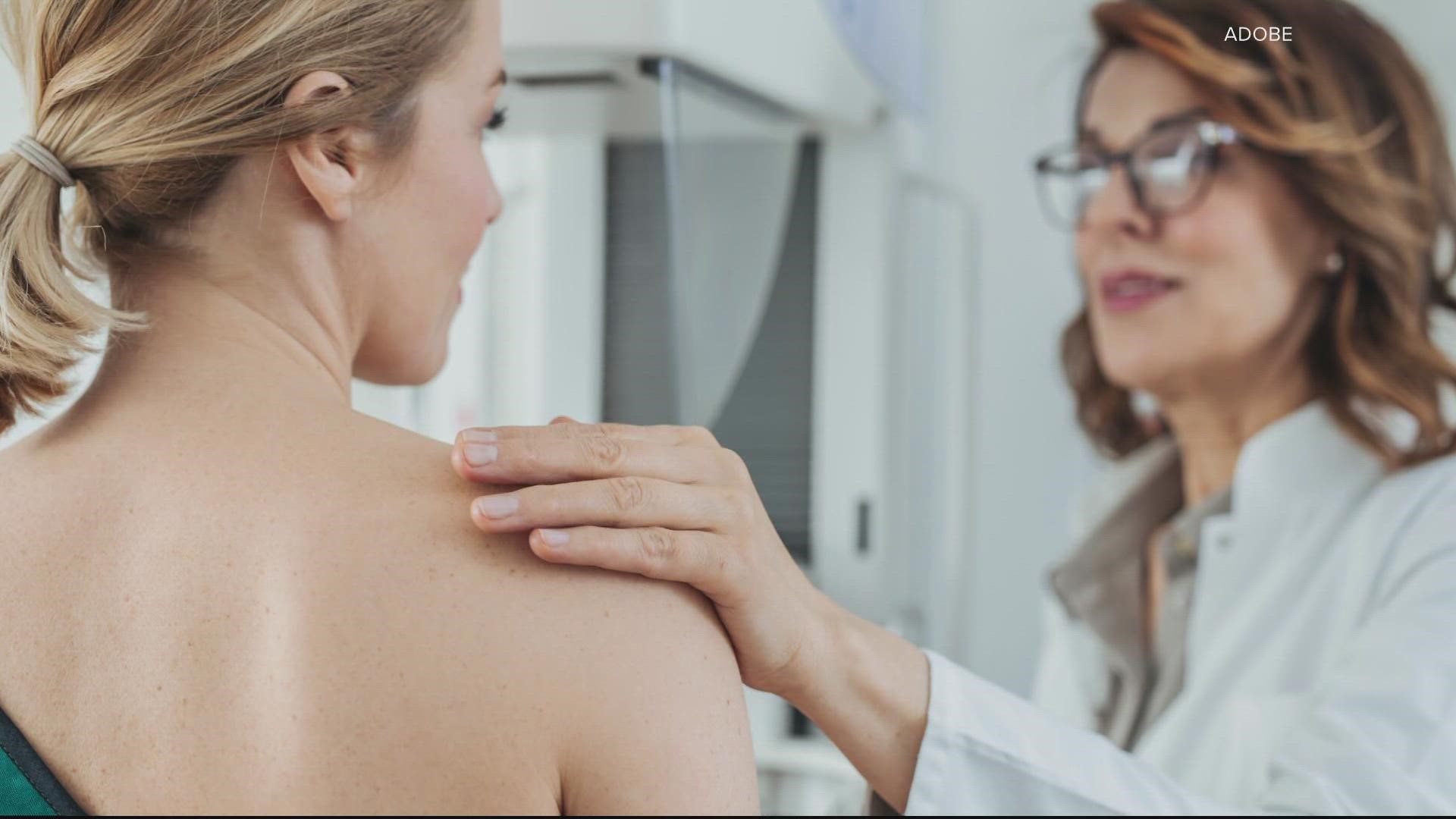WASHINGTON — It’s Breast Cancer Awareness Month. It's a time to be empowered with the facts: for yourself, for a loved one, for a cure. That also means learning about different ways breast cancer risk can be inherited, and what they mean for managing your health.
THE QUESTION:
How is breast cancer passed down?
THE SOURCES:
WHAT WE FOUND:
October is a month dedicated to learning more about a disease we’re well aware of, and chances are, you know someone who has had it, maybe even in your own family.
Doctors and researchers are putting these connections to work in the fight against breast cancer.
Like other medical conditions, Dr. Claudine Isaacs, oncologist specializing in breast cancer at MedStar Georgetown University Hospital, says breast cancer can run in the family.
“It's really important for women to know if they have a strong family history,” Dr. Isaacs said.
The CDC says chances of breast cancer are higher in someone whose mother, sister, or daughter, or multiple family members on either parent’s side of the family, has had breast or ovarian cancer.
“When you think of family history, it could be your immediate close relatives, or distant relatives. So family history is a broader categorization,” said Dr. Kala Visvanathan, professor of epidemiology at Johns Hopkins.
The American Cancer Society describes a variety of factors that could make cancer more common in some families, like lifestyle, ancestry, environment, personal medical history, and of course, genetics.
“About a third of women who develop breast cancer have a family history of breast cancer, but only about 10% have a hereditary predisposition,” said Dr. Isaacs.
You may have heard of “BRCA” gene mutations indicating higher likelihood of breast and other cancers.
Dr. Kala Visvanathan says medical professionals can now look at a whole panel of genetic information connected to breast cancer risk.
“So we ended up testing for more than those two genes. So we test for for a number of genes. And we then divide those genes into those that are at higher risk versus moderate versus less higher.”
RELATED: 'It's very empowering' | New cancer clinic helps women assess risk of developing breast cancer
Genetic testing is usually done with a blood draw or a cheek swab, in a clinic or at home. Some at-home-DNA tests available for consumer purchase, like 23andMe, are FDA-approved for detecting genetic variants like in the BRCA genes, but Dr. Visanathan says they aren’t comprehensive–or a substitute for a conversation with your doctor.
“If you're just intrigued or interested, go ahead, but I wouldn't use it to direct your health care,” said Dr. Visvanathan.
Screening and preventative action is often encouraged earlier or more frequently for people with family history, and people with additional genetic risk factors might also have more intensive pre-emptive medical options available.
Dr. Visvanathan acknowledges that people might be apprehensive about knowing too much about a possibly scary outlook–but she says it’s awareness of the risk.
“It's more of a case of understanding your risk, and then working with us to work out what are the appropriate screening options, depending on your age, depending on your risk? And how do we work with you to put these strategies into place in order to pick up cancers early or to prevent them?”

